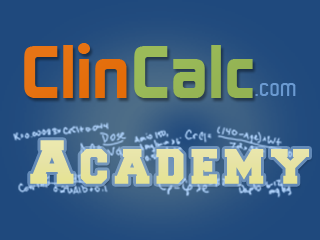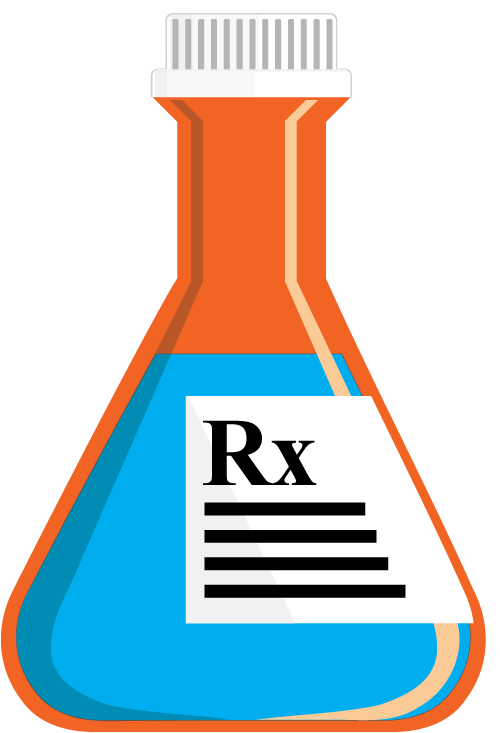
Biostatistics Rx
A practical guide to biostatistics, study design, and literature evaluation for healthcare providers
Transform your understanding of biostatistics and literature evaluation with these high-impact videos and quizzes — designed for busy healthcare professionals
Why Biostatistics Rx?
Are you struggling with complex biostatistics and clinical trial interpretations? You’re not alone. Our comprehensive online course, featuring 35 HD videos (about 5 ½ hours of content) and over 100 quiz questions, is designed to simplify these critical concepts for healthcare providers.
Biostatistics Rx Course Overview
Course Learning Objectives
- Classify types of data and outline appropriate descriptive statistics to summarize these data.
- Explain hypothesis testing in inferential statistics and interpret the results of these tests.
- Describe the most appropriate inferential statistical test based on the type of data being analyzed.
- Interpret the results of correlation and regression testing.
- Discuss the types of study designs and identify each design’s threats to validity, biases, confounding, and other limitations.
Course Modules
This course is built specifically for healthcare providers and students to leverage your valuable time and improve your foundational understanding of biostatistics and analyzing clinical trials. We’ve hand-picked the most essential concepts including:
Course Features
Track Your Progress
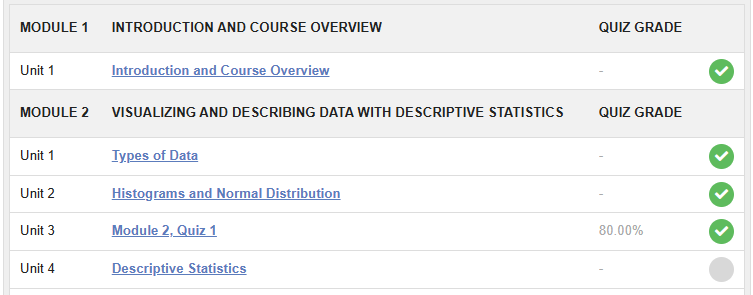
Track your progress as you complete each module, quiz, and exam
Comprehension Questions
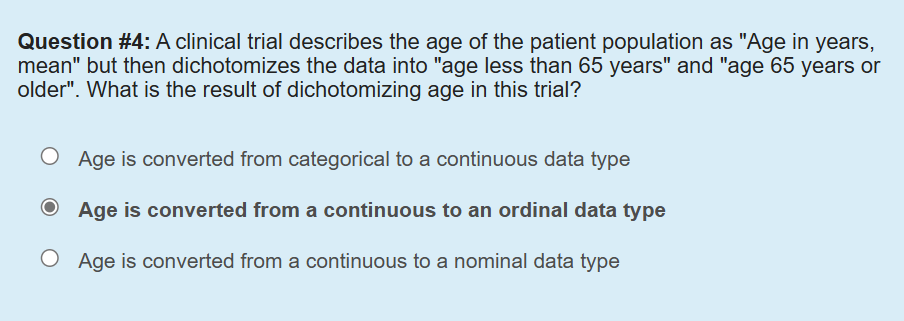
Frequent, low-stakes assessment improves long-term comprehension. Every module includes several quizzes and a full module exam to assess your learning.
Optimized Medical Education
ClinCalc Academy courses follow best practices of teaching and learning. Slides are designed to optimize learning and engagement, video length is targeted specifically for online learners, and formative practice is integrated into each module.
Who Should Take this Course?

Biostatistics Rx is designed for any healthcare professional or student who needs to improve their understanding of biostatistics and ability to interpret clinical trials.
Although this course is targeted to a variety of healthcare professionals, a significant number of learners use this course to prepare for the national pharmacy licensure exam (NAPLEX) and pharmacy BPS specialty certifications, including:
- Pharmacotherapy (BCPS)
- Ambulatory Care Pharmacy (BCACP)
- Cardiology Pharmacy (BCCP)
- Compounded Sterile Preparations Pharmacy (BCSCP)
- Critical Care Pharmacy (BCCCP)
- Emergency Medicine Pharmacy (BCEMP)
- Geriatric Pharmacy (BCGP)
- Infectious Diseases Pharmacy (BCIDP)
- Nutrition Support Pharmacy (BCNSP)
- Oncology Pharmacy (BCOP)
- Pediatric Pharmacy (BCPPS)
- Psychiatric Pharmacy (BCPP)
- Solid Organ Transplantation Pharmacy (BCTXP)
Medical Literature Evaluation is an Essential Skill
Understanding and interpreting a clinical trial is an essential skill for all healthcare professionals. For this reason, many standardized exams specifically assess core concepts of evidence-based medicine, biostatistics, and the application of evidence into practice:
- Board certification exams for pharmacists (such as BCPS or similar specialty exams) devote 15-25% of the exam to these concepts
- The NAPLEX pharmacy licensure exam includes biostatistics (Area 4.8), evidence-based literature interpretation (Area 1.7), and application of evidence-based practice to develop treatment plans (Area 3.11)
- The physician assistant PANCE exam includes critically analyzing evidence-based medicine in the “Professional Practice” portion of the assessment
- For physicians, the USMLE Step 1, Step 2 CK, and Step 3 all include a section on biostatistics and interpretation of medical literature
Despite the emphasis on biostatistics and evidence-based medicine, the majority of healthcare providers and health sciences faculty cannot correctly answer basic questions about these topics (J Clin Transl Sci. 2021;5(1):e153.; Ann Pharmacother. 2012;46(7-8):991-999.; J Oral Maxillofac Surg. 2013;71(1):227-234.; J Surg Educ. 2014;71(4):574-579.).
Free Cheat Sheet Guides
Are you interested in a succinct study guide covering epidemiologic statistic calculations and interpretation (sensitivity, specificity, relative risk, etc.) and inferential statistical tests (when to use tests like an independent t-test vs. Chi square test)?
Provide your email below to receive these two cheat sheet guides directly to your inbox for FREE:
Sample Videos from the Course
Testimonials
About the Course Instructor

Sean P. Kane, PharmD, BCPS
Sean Kane, PharmD, BCPS received his Doctor of Pharmacy degree from Butler University in 2010. In 2011, he completed a PGY-1 pharmacy practice residency, and in 2012 he received board certification in pharmacotherapy and completed a PGY-2 critical care residency at the University of Illinois at Chicago.
Dr. Kane worked as a critical care pharmacist for more than a decade before transitioning to academia full-time. Currently, Dr. Kane is an Associate Professor in the Department of Pharmacy Practice at Rosalind Franklin University of Medicine and Science in North Chicago, Illinois and is the Senior Associate Dean and Associate Dean for Assessment.
As part of his teaching role, Dr. Kane provides more than 100 hours per year of classroom instruction on a wide variety of topics ranging from cardiovascular pharmacotherapy to medical literature evaluation.
Enroll in the Biostatistics Rx Online Course
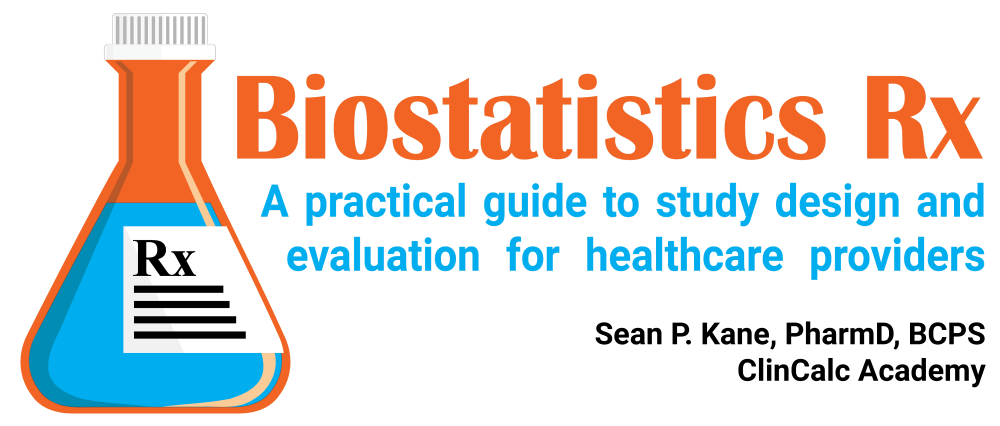
Questions about the course? Please direct all inquiries to academy@clincalc.com
